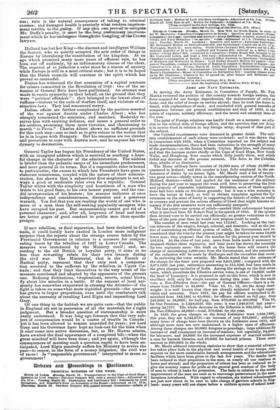Holland has lost her King—the discreet and intelligent William the
Second, who so quietly accepted the new order of things in Europe by liberalizing the constitution of his kingdom. At an age which promised many more years of efficient rule, he has been cut off suddenly, by an inflammatory disease of the chest. The removal of so judicious a ruler must be a source of anxiety while Europe is still in a most critical state ; but it is to be hoped that the Dutch councils will continue in the spirit which has proved so successful. France has witnessed the first execution of a capital sentence for crimes committed in the Revolution of 1848: two of the as- sassins of General Brea have been guillotined. An attempt was made to excite sympathy in their behalf, on the ground that they were " political offenders" : they belonged to the lowest class of ruffians—traitors to the code of warfare itself, and violators of in- stinctive laws. They had renounced mercy. Italian affairs are further complicated by the positive renewal of the war against Austria under Charles Albert ; who has abruptly terminated the armistice, and marched. Radetzky re- ceives him with exulting defiance, and issues a general order to his soldiers, promising them more victories, and threatening to march " to Turin." Charles Albert shows no sufficient grounds for this rash step—one so rash as to give colour to the notion that he is in league with Hungary. But his resources are too slender and precarious to cope with Austria now, and he exposes his very dynasty to destruction.


























 Previous page
Previous page